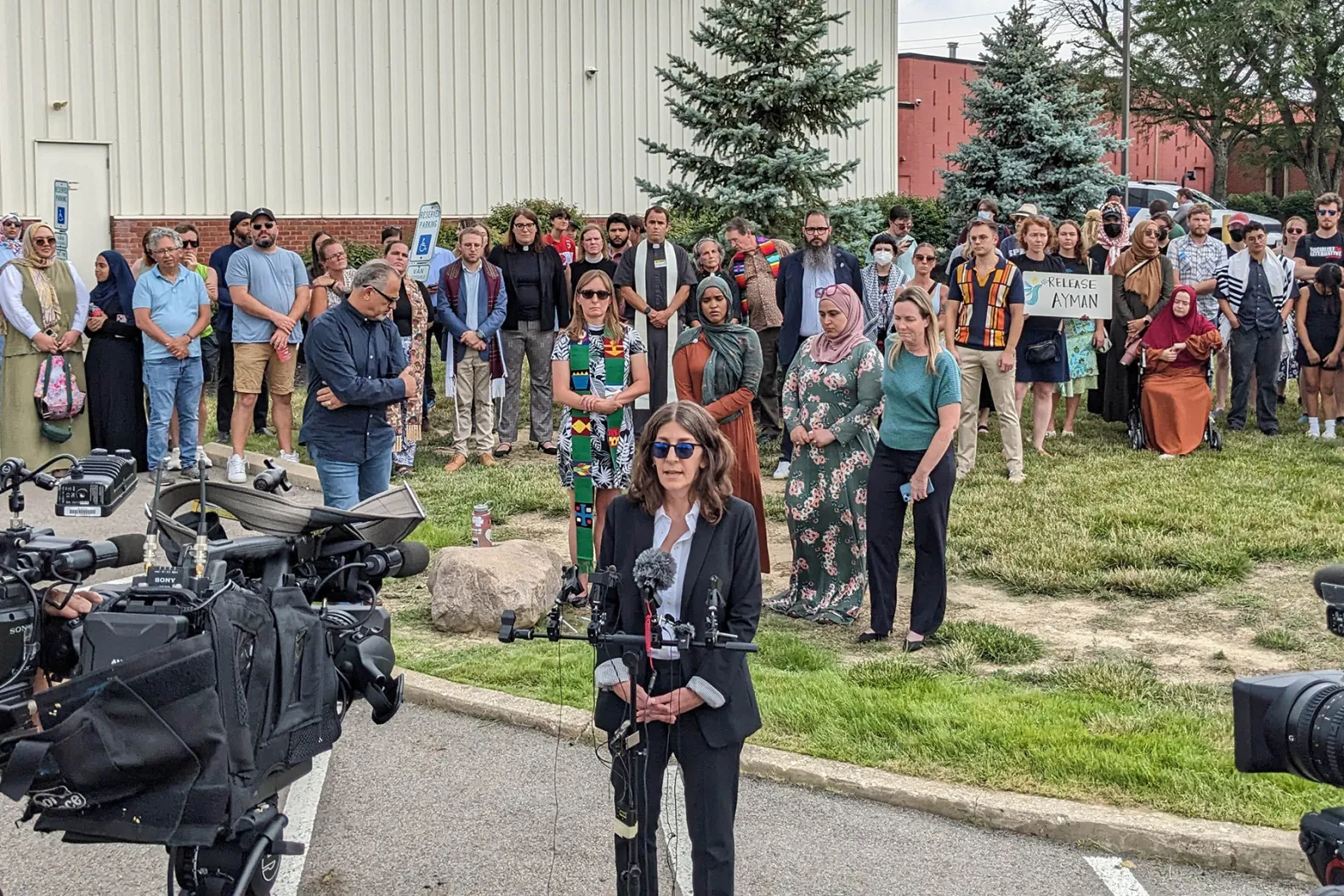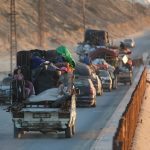The detention of respected community leaders by U.S. Immigration and Customs Enforcement (ICE) has once again ignited a nationwide debate about immigration policies, civil rights, and the growing reach of federal enforcement agencies. When individuals who serve their communities as firefighters, pastors, and journalists are suddenly taken into custody, the story transcends beyond immigration law — it becomes a powerful reflection of justice, identity, and public trust.
- Understanding the Role of ICE in Immigration Enforcement
- The Detained Community Leaders
- Legal and Constitutional Concerns
- Public Reaction and Outrage
- Statistical Context: Who is Being Detained?
- The Broader Immigration Debate
- Historical Precedents of Targeting Leaders
- Expert Opinions
- The Human Cost of Detention
- Potential Legal Outcomes
- Lessons for America’s Immigration Future
- FAQs
- Conclusion
This article explores the case of ICE detaining community leaders, analyzing its social, legal, and political implications. From personal narratives to expert perspectives, from public reaction to constitutional concerns, the story underscores the tension between enforcement and compassion in America’s ongoing immigration debate.
Understanding the Role of ICE in Immigration Enforcement
ICE is tasked with enforcing immigration laws, detaining undocumented individuals, and conducting deportations. Supporters of ICE argue that it plays a crucial role in national security and border control. Critics, however, believe the agency has increasingly targeted vulnerable populations, often causing harm to communities rather than protecting them.
When enforcement actions extend to individuals widely regarded as role models — such as a firefighter risking lives, a pastor guiding congregations, or a journalist seeking truth — the agency’s legitimacy faces serious public scrutiny.
The Detained Community Leaders
The Firefighter
The firefighter, known in his community for saving lives during natural disasters and house fires, was suddenly detained by ICE officers. Neighbors expressed disbelief, describing him as a “hero who never hesitated to help anyone in need.”
His detention raises questions about whether public service and community contributions are considered in immigration enforcement decisions. If someone who protects lives is not shielded from removal, what does that signal to the rest of society?
The Pastor
The pastor had been serving a diverse congregation, providing counseling, food assistance, and shelter to struggling families. For many immigrants, churches are safe havens. His sudden arrest disrupted not only a family but an entire community that depended on him for guidance and support.
Faith leaders across the country condemned the arrest, calling it an “attack on religious freedom and humanitarian service.”
The Journalist
The journalist had been covering stories on immigrant communities, often giving a voice to the voiceless. His detention raised alarm about press freedom and the risks faced by reporters covering sensitive topics. Advocacy groups warned that targeting journalists creates a chilling effect, discouraging coverage of controversial issues.
Legal and Constitutional Concerns
Due Process Rights
Critics argue that ICE’s detention policies often bypass basic due process protections. Immigrants may be detained without access to legal representation, speedy hearings, or fair review of their cases.
First Amendment Implications
The detention of a pastor and a journalist introduces First Amendment concerns:
- Freedom of Religion – Arresting faith leaders may discourage religious communities from offering sanctuary or aid.
- Freedom of the Press – Detaining journalists risks silencing critical reporting.
Community Trust and Law Enforcement
Local leaders warn that aggressive ICE actions erode trust between immigrant communities and law enforcement. When firefighters and pastors are not safe, undocumented families are less likely to call the police, report crimes, or cooperate during emergencies.
Public Reaction and Outrage
Community Response
In the days following the detentions, candlelight vigils, marches, and community rallies erupted across several states. Signs reading “Heroes, Not Criminals” and “Hands Off Our Leaders” became rallying cries.
One local resident said, “If they can take our firefighter and pastor, they can take anyone. We’re living in fear.”
Faith and Civil Society Leaders Speak Out
Faith organizations condemned the detentions, arguing that targeting a pastor undermined humanitarian principles. Civil society groups stressed that the journalist’s detention was “a direct threat to press freedom in America.”
Political Leaders’ Response
Democratic lawmakers called the detentions a “gross misuse of federal power,” while Republicans defended ICE as enforcing the law uniformly, regardless of occupation. The divide reflects the larger partisan split over immigration policy.
Statistical Context: Who is Being Detained?
According to ICE’s own reports:
- In 2019, ICE made over 143,000 arrests of immigrants, many of whom had no criminal records.
- Around 37% of those detained were individuals with no prior criminal convictions.
- Studies show that immigrants, both documented and undocumented, are less likely to commit crimes than U.S.-born citizens.
These numbers challenge the narrative that ICE’s primary focus is on “dangerous criminals.” Instead, enforcement often sweeps up community members, workers, and leaders.
The Broader Immigration Debate
Supporters of ICE’s Actions
Proponents argue that immigration laws must be applied equally, regardless of one’s profession or public status. They believe that making exceptions undermines the rule of law and encourages illegal immigration.
Critics of ICE’s Actions
Opponents contend that enforcement without compassion destroys communities. Detaining respected leaders creates fear, discourages civic participation, and weakens the social fabric of towns and cities.
Historical Precedents of Targeting Leaders
This is not the first time ICE or its predecessor agencies have targeted high-profile community members.
- In the early 2000s, immigrant activists were monitored and detained during protests.
- In recent years, several faith leaders offering sanctuary in churches were arrested.
- Journalists covering border issues have reported harassment and surveillance.
The trend suggests a broader pattern where individuals speaking out or serving immigrant communities face disproportionate risks.
Expert Opinions
Legal Scholars
Constitutional experts warn that detaining journalists and pastors opens the door to abuse of power. “The First Amendment is not optional,” one scholar remarked.
Immigration Advocates
Advocacy groups argue that the detentions prove the system is broken. “When heroes are being taken away, we have to ask what kind of society we are building,” said an immigration rights attorney.
Policy Analysts
Analysts suggest that focusing enforcement resources on community leaders does not improve security. Instead, it damages the government’s credibility and strains relations with immigrant populations.
The Human Cost of Detention
Families Torn Apart
Behind every detained leader is a family in crisis. Children suddenly lose a parent, congregations lose spiritual guidance, and neighborhoods lose mentors.
Psychological Impact
Research shows that ICE raids and detentions cause lasting trauma for children and families. Anxiety, depression, and mistrust often follow such incidents.
Economic Consequences
When working individuals like firefighters and journalists are detained, families lose income, and communities lose valuable services.
Potential Legal Outcomes
The cases of the detained leaders are expected to go through immigration courts. Possible outcomes include:
- Release on bond.
- Ongoing deportation proceedings.
- Appeals that could take years.
Advocates hope the public spotlight will increase chances of favorable outcomes, but the uncertainty highlights the precariousness of immigration law.
Lessons for America’s Immigration Future
Balancing Security and Humanity
The controversy illustrates the need for reforms that balance national security with compassion.
Rebuilding Trust
Community trust in law enforcement must be restored, which requires ICE to adopt more transparent and humane practices.
Legislative Reform
Ultimately, immigration reform lies with Congress. Until comprehensive solutions are enacted, enforcement will remain inconsistent and controversial.
FAQs
Who were the detained community leaders?
They included a firefighter, a pastor, and a journalist — all known for serving their communities.
Why did ICE detain them?
ICE stated they were undocumented or had unresolved immigration cases, but critics argue their detentions were disproportionate.
What constitutional concerns does this raise?
Their detentions raise First Amendment issues involving freedom of religion and freedom of the press, as well as due process concerns.
How did the public react?
There were widespread protests, vigils, and condemnation from faith groups, civil society leaders, and many politicians.
What could happen next?
The leaders’ cases will go through immigration courts, but their high-profile status may influence outcomes.
Conclusion
The detention of a firefighter, a pastor, and a journalist by ICE is not just an immigration story — it is a profound commentary on justice, public trust, and America’s values. These individuals represent safety, faith, and truth, yet their sudden arrests have left communities shaken and questioning the direction of immigration enforcement.
The debate is no longer about policy alone but about the kind of nation the United States aspires to be. Will enforcement prioritize compassion and fairness, or will it continue to create fear by targeting even those who serve their communities?
This case underscores an undeniable truth: immigration reform is urgently needed. Until then, the detentions of community leaders will remain a stark reminder of the human cost of broken policies and the ongoing struggle to align law with liberty.








